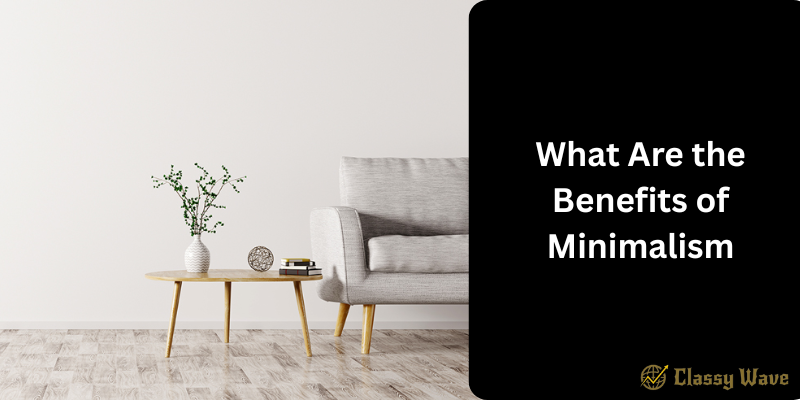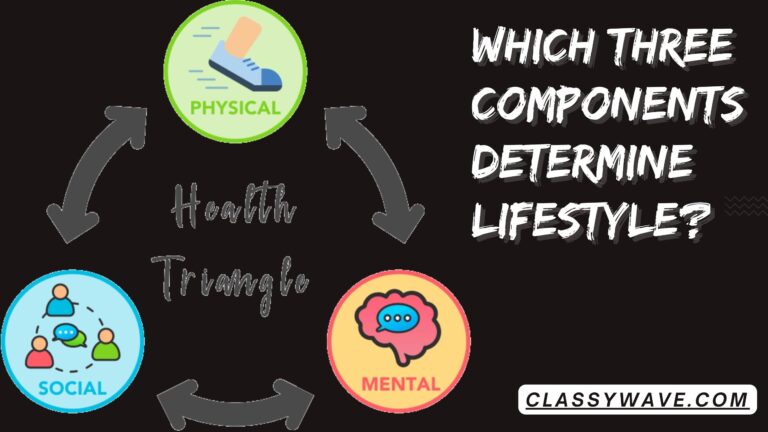What Are the Benefits of Minimalism | Classy Wave
Minimalism isn’t just about having fewer things—it’s about creating more space for what truly matters. In a world that constantly encourages us to buy more, own more, and do more, minimalism invites us to slow down and live with intention. It’s not about living with nothing; it’s about living with purpose. But what exactly are the benefits of minimalism, and how can it improve your daily life? Let’s explore the powerful ways minimalism can simplify, balance, and transform your world.
1. Reduces Stress and Anxiety
One of the biggest benefits of minimalism is mental clarity. When you declutter your surroundings, you also declutter your mind. A clean, organized space reduces feelings of chaos and stress.
Think about it: walking into a tidy room feels instantly calming, while clutter can make you feel overwhelmed. By owning less, you create an environment that promotes peace and relaxation.
2. Saves Time and Energy
The less you own, the less you have to clean, organize, and maintain. Instead of spending hours dusting shelves or searching for misplaced items, you can focus your time on activities that truly matter—like hobbies, learning, or spending time with loved ones.
Minimalism helps you simplify your daily routine, making your life more efficient and enjoyable.
3. Encourages Financial Freedom
When you embrace minimalism, you become more mindful of what you buy. You stop spending money on things you don’t really need and start prioritizing experiences or savings instead.
This conscious spending habit can lead to:
- Lower debt
- Increased savings
- Financial independence
In essence, minimalism helps you live below your means without feeling deprived.
4. Improves Focus and Productivity
A clutter-free environment leads to a clutter-free mind. With fewer distractions, you can focus better on your tasks. Minimalism helps you prioritize your goals and eliminate the unnecessary noise that often holds you back. Whether it’s at home or work, simplicity enhances concentration and boosts productivity.
5. Promotes Better Mental Health
Owning too much can create a sense of burden—physically, mentally, and emotionally. Minimalism helps lift that weight. When you let go of excess possessions, you also let go of guilt, comparison, and attachment.
Living minimally promotes mindfulness, gratitude, and emotional stability. You begin to appreciate what you have instead of always chasing what you don’t.
6. Strengthens Relationships
When material things stop being the center of your life, relationships take their rightful place. Minimalism allows you to spend more time with the people you love rather than constantly chasing after new possessions or working extra hours to afford them. You begin to value connections over collections.
7. Helps You Live More Intentionally
Minimalism is about aligning your actions with your values. Instead of living on autopilot, you make deliberate choices about what enters your life—whether it’s objects, habits, or relationships. This intentional living creates a deep sense of purpose and satisfaction.
8. Boosts Creativity
A simple environment sparks creative thinking. Without visual clutter or constant distractions, your mind is free to imagine, create, and innovate. Many artists, writers, and entrepreneurs embrace minimalism because it allows them to channel their energy into their craft instead of their surroundings.
9. Improves Physical Health
Believe it or not, minimalism can even impact your physical well-being. A tidy space motivates you to maintain cleanliness, cook healthy meals at home, and stay active. When your home feels light and peaceful, your energy naturally increases, promoting healthier daily habits.
10. Benefits the Environment
Living minimally means consuming less—and that’s good for the planet. By buying fewer, higher-quality items, you reduce waste and your carbon footprint. You become more eco-conscious, choosing sustainability over consumerism. In the long run, this small shift can make a big difference for the environment.
11. Enhances Gratitude
Minimalism teaches you to appreciate the simple things in life—like a cozy cup of tea, a walk in nature, or a meaningful conversation. When you stop focusing on what’s missing, you start noticing what’s already beautiful around you. This mindset shift builds long-term happiness and gratitude.
12. Simplifies Decision-Making
How much time do we waste deciding what to wear, what to eat, or what to buy? Minimalism eliminates unnecessary choices. With fewer options, decisions become easier and faster. You save mental energy for the things that truly deserve your attention.
13. Supports Sustainable Living
Minimalism naturally aligns with sustainability. You buy less, reuse more, and choose quality over quantity. By reducing consumption, you contribute to a healthier planet and a more sustainable lifestyle—benefiting not just yourself, but future generations too.
14. Encourages Personal Growth
As you let go of material possessions, you often find yourself reflecting on your values and goals. Minimalism encourages self-awareness and growth. You start to identify what truly makes you happy—and it’s rarely the stuff you own.
15. Gives You a Sense of Freedom
The ultimate benefit of minimalism is freedom—freedom from clutter, debt, stress, and expectations. You’re no longer tied to possessions or the pressure to “keep up.” Instead, you gain freedom to live life on your own terms, filled with purpose, clarity, and joy.
Conclusion
Minimalism isn’t about empty shelves or white walls—it’s about making room for what matters most. By simplifying your life, you create space for peace, purpose, and connection. You save time, money, and energy while gaining clarity and freedom. Whether you start by decluttering one room or one habit, each small step toward minimalism moves you closer to a life of intention and fulfillment.







